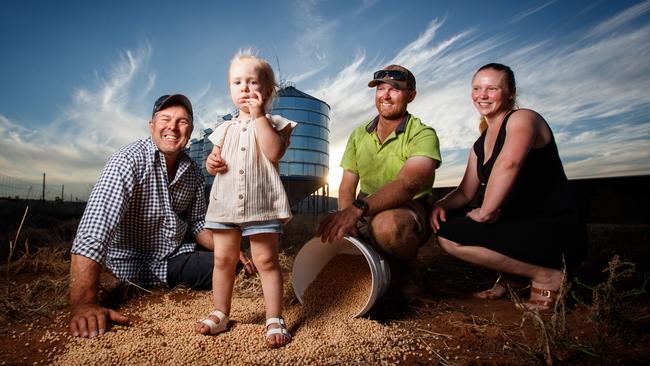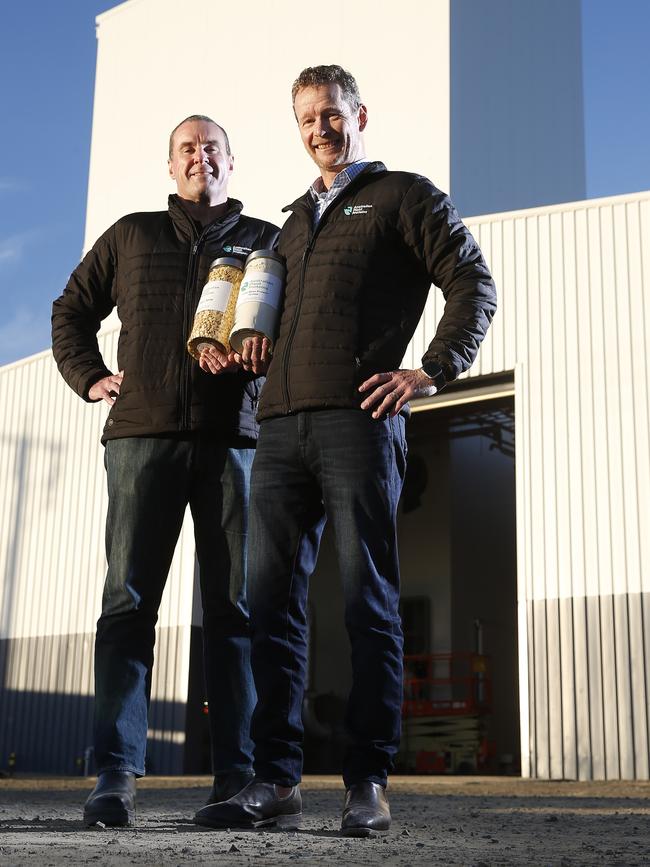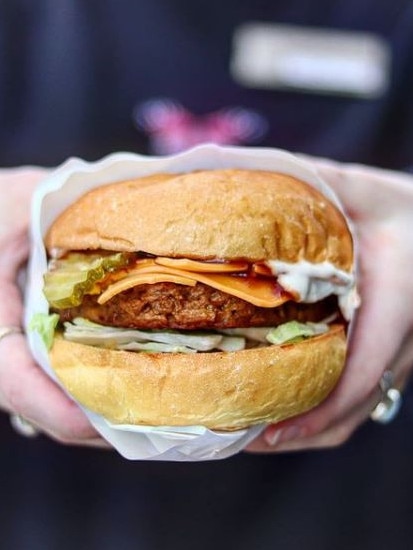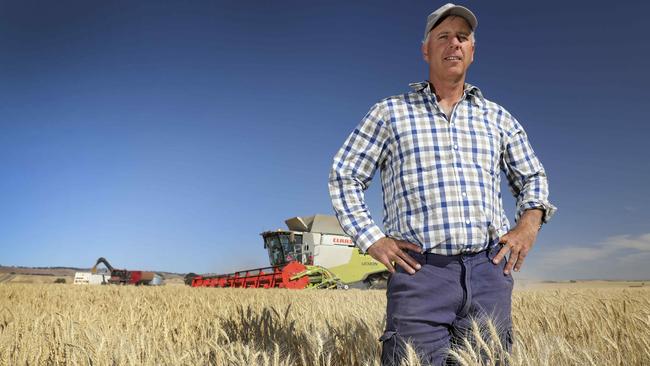SA’s new plant-protein industry set to explode in ‘game changing’ investment’
Ploughing tens of millions of dollars into “vegan meat” may be he best thing to happen to SA farmers since San Remo Pasta.
SA Business
Don't miss out on the headlines from SA Business. Followed categories will be added to My News.
On a sprawling farm neighbouring the picturesque Barossa Valley wine region, Gavin Schuster is bracing for a new dawn in South Australian agriculture.
A $378m investment by a consortium of food heavyweights to build three new plant-protein manufacturing hubs, backed with big government money, has altered the course for future generations of SA farmers. It’s expected to help almost double the value of the SA grain sector to become a $6bn industry by 2030.
Pulse, or grain legume, farmers like Mr Schuster and his family are heralding the project as the biggest development in SA agriculture since famous local pasta company San Remo sparked a revolution of durum wheat growing in the late 1980s.
“It’s the one thing SA needs to do. We need to put ourselves ahead of the game,” Mr Schuster, a fifth generation pulse and barley farmer at Freeling says.
“It obviously takes mega dollars, but everyone is backing it. The farmers are going to back it to no end.”

The company spearheading the state’s plant-based revolution is Victorian company Australian Plant Proteins (APP), which will operate one of the hubs in SA, quadrupling their existing operations in Werribee and Horsham.
They are in the game of protein extraction, turning grains and legumes into protein rich powder that can then be used by manufacturers to create a vast array of plant-based foods from meat alternatives – think vegan burgers and sausages – to protein bars and non-dairy drinks. Other products can include egg white replacements, dairy-free cheeses, snacks and baked goods.
It’s all to help address a global protein shortage, which is so serious even one of Australia’s biggest red meat producers – SA-based Thomas Foods International – has bought into the consortium with almost $50m of their own cash and will operate one of the hubs. APP founder Brendan McKeegan says SA farmers will have the option to sell their pulses directly to the company and others like APP, providing a more reliable market than exporting their goods offshore as raw commodities. Mr McKeegan says the plant-protein industry relies on laser accurate market data that can inform farmers exactly what to grow, instead of being at the whim of global markets.
“A farmer plants a crop around this time of year and then eight months later they’ll pull it out of the ground … and the price is purely dependent on the global commodity market,” Mr McKeegan says.
“They’re planting not knowing necessarily what the price is going to be for the product. And they’re making their decision on whether they plant lentils or fava beans or chickpeas based on the historical market, not on what is being offered for their product in real time.”


It’s expected to be more profitable for farmers to sell directly into the plant-protein industry, rather than in the global commodity market, Grain Producers SA chairman Adrian McCabe says, explaining a farming buzzword known as “value-adding”.
Often, significant portions of a farmer’s pulse hauls become discoloured or deformed due to weather and must be sold in the animal feed market at a price up to 30 per cent lower than if it was sold for human consumption.
“If you go into a shop that is selling grain legumes raw, it’s all about the colour of them and the size,” Mr McCabe says.
“That doesn’t change the value of the protein it holds … it’s just very hard to sell a discoloured bean.”
But the plant-protein industry doesn’t care what the raw beans look like – because it will ultimately be transformed into meat alternatives and other plant-based products. Companies like APP are buying the beans purely for the protein, and they are willing to pay top dollar.
“The risk in grain legumes was higher, but now we hope we are able to get that high price rather than the downgraded feed price,” Mr McCabe says.
“It’s the biggest thing we have seen locally in grain in my time in farming.
“It’s absolutely a game changer and I think it really plays well into both lowering emissions as a state and a country … as well as becoming more profitable as a grain producer.” Mr McCabe says SA produces more than 700,000 tonnes of grain legumes a year “without much encouragement”.
“I would absolutely expect grain legume production to expand on the back of this.”

The United Nations predicts the global population will reach 8.5 billion in 2030. Australia has recognised it doesn’t produce enough red meat to keep up with soaring demand for protein. So the federal government has turned to SA, which has prime access to ports and the perfect climate and environment for growing pulses. The federal government has contributed $113m to get the new industry off the ground, while the state government kicked in $65m. The consortium of APP, Thomas Foods, and Australian Milling Group have invested the rest, taking the total project cost to $378m.
It’s expected to create more than 8500 jobs nationwide by 2034 – more than 3000 of those in SA – and generate $4bn in exports.
As The Advertiser broke news of the investment on Tuesday, Thomas Foods boss Darren Thomas said: “If I was a farmer waking up this morning, I would have a big smile on my
face”.





